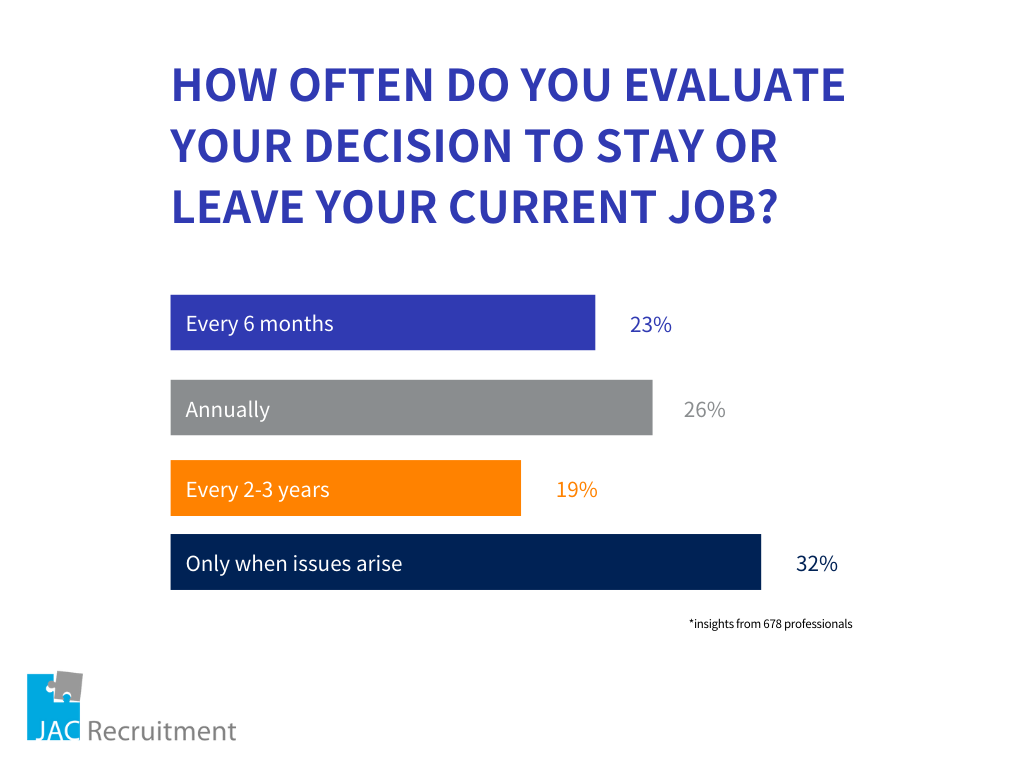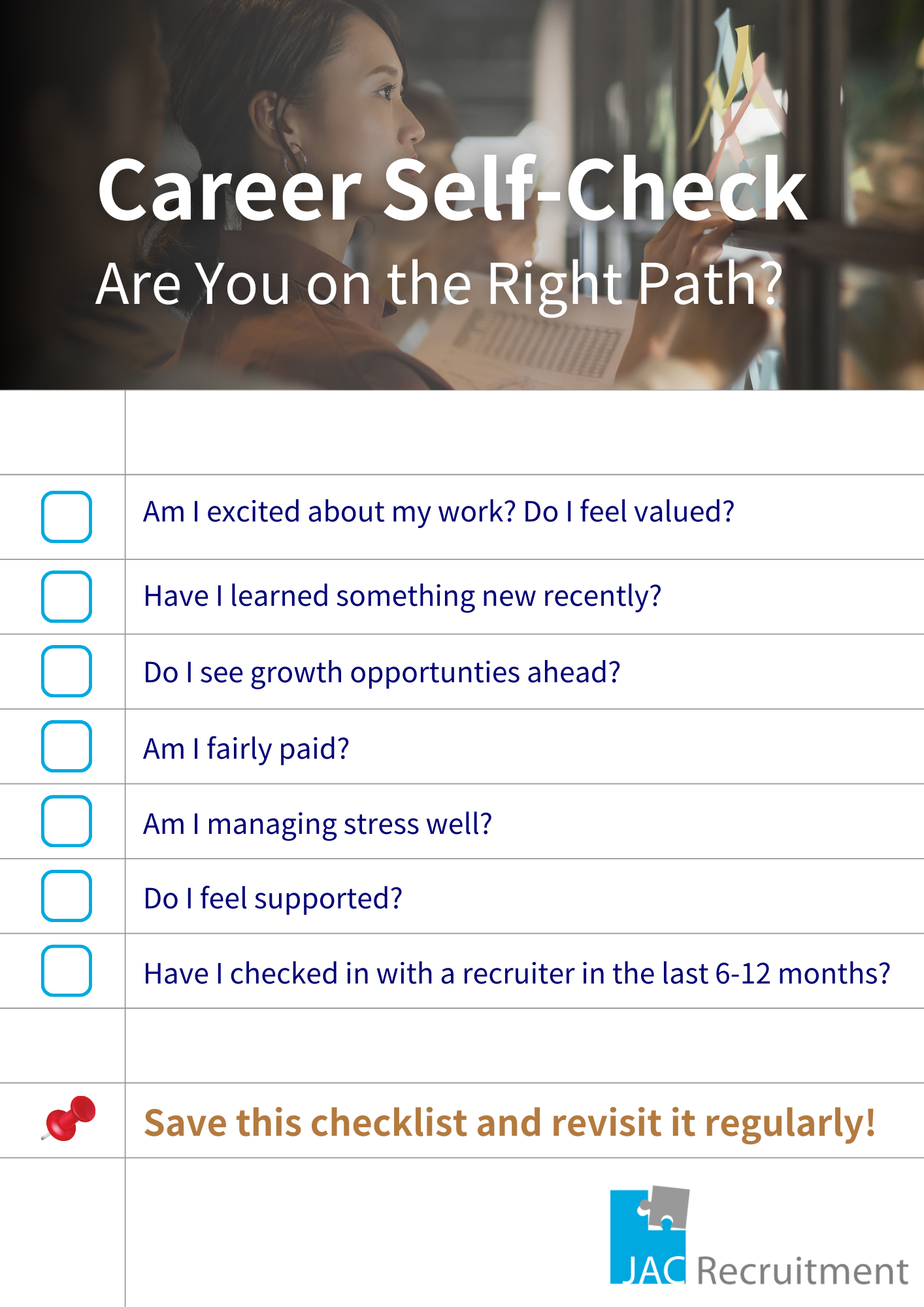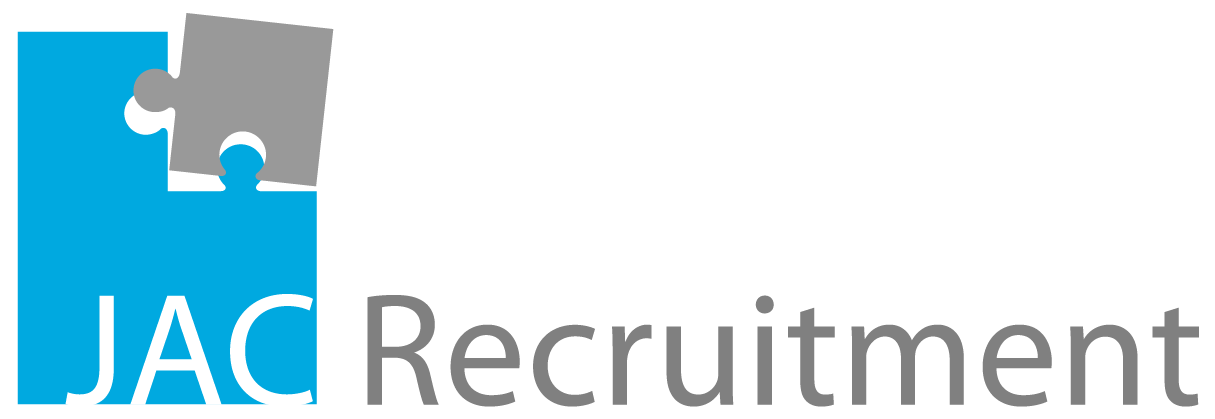Career decisions are rarely black and white. Some professionals plan regular check-ins to assess their job satisfaction and career trajectory, while others only rethink their role when faced with a challenge. Our recent survey on career self-evaluation reveals a fascinating spectrum of approaches, raising the question: Is there an optimal frequency for career reflection, or does it depend entirely on personal goals, industry norms, and external forces?

Career Reflection as a Spectrum
Rather than a simple divide between proactive and reactive career management, our findings suggest a continuum of behaviors:
49% of respondents evaluate their job every six months or annually, suggesting an active approach to career growth and adaptability.
19% reassess every 2-3 years, potentially valuing stability and long-term projects.
32% only reflect when issues arise, indicating a more reactive mindset.
But is frequent evaluation a sign of strategic career planning, or can it lead to unnecessary doubt and instability?
The Stability vs. Agility Debate in Career Planning
Professionals who assess their jobs regularly often prioritise growth, adaptability, and progression. They stay ahead of industry shifts, seek opportunities proactively, and ensure their roles align with their evolving goals.
Meanwhile, those who reassess only every few years or when problems arise, may emphasise stability, long-term commitment, and deep investment in their work. This raises an interesting contrast:
Does frequent evaluation lead to better career outcomes, or does it create unnecessary churn?
Does long-term stability foster loyalty and expertise, or can it lead to stagnation?
How Workplace Culture & Industry Norms Shape Career Reflection
The frequency of career assessment is not just a personal choice, it is often shaped by industry expectations and workplace culture:
Fast-moving industries (e.g., tech, consulting) encourage regular self-reflection, as opportunities shift quickly.
Industries with long-term projects (e.g., academia, government, infrastructure) may naturally foster a more extended evaluation cycle.
Company culture and leadership can also influence whether employees feel secure enough to plan long-term or whether they constantly weigh their options.
If a workplace fosters continuous learning, growth, and open career conversations, employees may feel more in control of their career paths, reducing the need for reactive decision-making.
The External Forces That Influence Career Decisions
Career reflection is not always a personal choice; external factors play a major role:
Economic downturns can make employees hesitant to change jobs, even if they feel disengaged.
A booming job market might encourage more frequent reassessments as new opportunities arise.
Personal life stages (e.g., starting a family, relocating) can shift priorities and redefine what job satisfaction means.
So, how much of career decision-making is truly personal, and how much is shaped by forces beyond our control?
The Reactive Approach: Only Reassessing When Issues Arise
For 32% of our respondents, career evaluation happens only when problems arise. This approach often stems from:
Efficiency & focus - Why fix what is not broken?
Commitment to stability - Long-term investments in roles and projects discourage frequent change.
Confidence in problem-solving - Every job has challenges; overcoming them is part of professional growth.
But while this mindset might work for some, it also carries risks:
Missed growth opportunities - If someone only reassesses their career when issues arise, they might overlook not only external but internal chances for proactive growth, whether that is negotiating for better opportunities, upskilling, or exploring new career paths.
Emotion-driven decisions - Reevaluating a career only under stress can lead to rushed choices rather than strategic moves.
Gradual disengagement - Job dissatisfaction does not always appear as a crisis; it can build quietly over time.
Another critical question: What qualifies as an ‘issue’? Is it only a toxic environment or stagnant pay, or does a lack of passion also count? By waiting for obvious problems, are professionals inadvertently delaying necessary career moves?
When Should You Reevaluate Your Career?
There may not be a single “right” answer, but a few guiding principles can help professionals navigate their career reflection process:
Structured self-checks (every six months to a year) can help prevent stagnation.
Event-driven reassessments (e.g., after a promotion, major project, or market change) ensure decisions align with new realities.
Blending proactive and reactive approaches allows professionals to stay adaptable without feeling pressured to change unnecessarily.
We schedule health check-ups, financial planning sessions, and even home maintenance. Should career reflection follow the same structured approach or is it one of the few areas where a reactive mindset can work just as well?
Ultimately, the key may not be how often we evaluate our careers, but how intentionally we do so.
Here is a simple checklist to help you reflect whether you're thriving, feeling stuck, or somewhere in between.
 |


